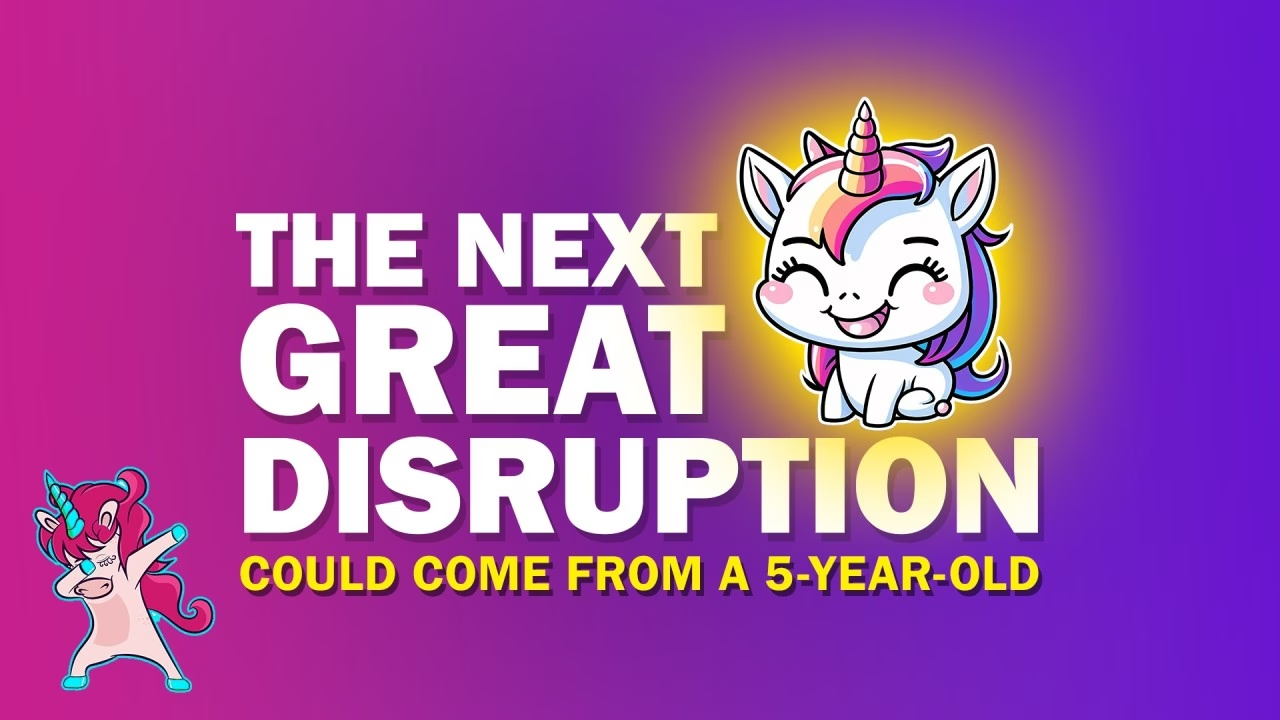Every industry giant we know today began with just one person or a group of friends armed with an idea. Amazon started with Jeff Bezos selling books online. Google was born in a dorm room with two PhD students. Apple emerged from a garage thanks to Steve Jobs and Steve Wozniak, while Microsoft was a product of Bill Gates and Paul Allen writing code. These companies transformed entire sectors, yet they started small and faced significant challenges. Today, however, the landscape of innovation is shifting dramatically.
The Game Has Changed
The next big disruptor isn’t a startup in the traditional sense—it’s a schoolkid equipped with AI. Imagine a teenager empowered with thousands of AI agents, working in real-time. These AI agents can think and act faster than the most elite innovation teams of the past. They write code, build businesses, and automate processes effortlessly. Algorithmic investors can scan and fund ideas instantly, eliminating the need for massive teams and extensive capital. This wave of exponential disruption is redefining how industries evolve—and it’s happening right now.
Why Traditional Strategies Are Obsolete
Past strategies that used to safeguard large companies are now becoming their Achilles’ heel. Relying solely on internal research and development is too slow. Acquiring innovation is no longer feasible at the speed required, and defending market position against lightning-fast disruptors is nearly impossible. This means companies need to rethink how they approach innovation and competition.
The New Survival Strategy: Spin Out or Be Left Behind
- Encouraging Spin-Outs: Talented tech professionals must break free from corporate constraints to form independent, venture-backed startups.
- AI-Infused Speed: Spin-outs need to operate at startup speed, enhanced significantly with AI capabilities.
- Partnerships: Legacy companies can stay relevant only by collaborating with the disruptors they help create.
Innovation confined within corporate boundaries lacks access to external funding and can’t move at the speed of disruption. It leads only to slow, incremental change without real transformation.
The Rise of AI-Driven Disruptors
AI-driven disruptors are already paving the way for a new era of innovation. They won’t wait for traditional businesses to catch up. If companies do not push their brightest minds into real startups, they risk falling behind or even becoming obsolete.
It’s Happening Now
This is not about the future. Disruption is already underway. Companies must decide whether they want to be the disruptors or the disrupted. It’s a critical aspect of risk management in today’s business landscape.
The Power of Reverse Engineering
If you’re skeptical, try reverse engineering existing business models, products, or services. AI makes it much easier to do so, and keeping information protected from it is challenging. The potential for disruption is enormous, and it’s essential to keep up with these changes.
Conclusion: Prepare for the Future
The disruption led by AI and a new generation of innovators is not just an exciting prospect; it’s a call to action. If you have children, teach them AI coding. Encourage curiosity and adaptability. This transformation is not hard to grasp but could redefine how we perceive innovation. Are you ready for this change?
